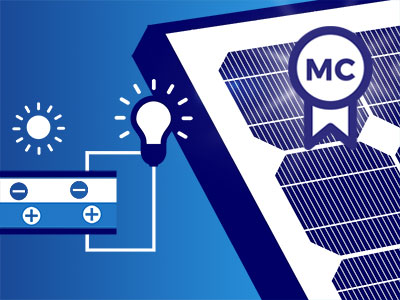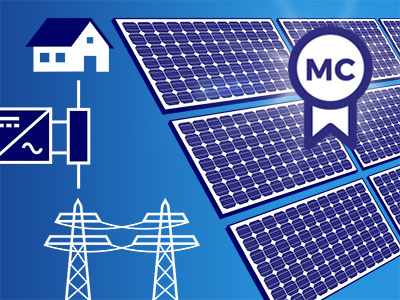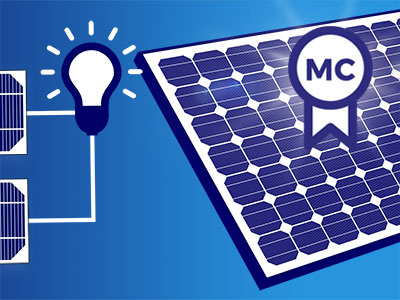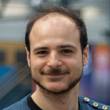investment was definitely worth it - Bertram Peterson
Bertram Peterson
Mexico
"At the time, the cost was considerable, but the investment was definitely worth it, both academically and professionally."
Bertram Peterson is a Photovoltaics Engineer and Solar Energy Instructor from Mexico. He participated in the online Solar Energy Engineering MicroMasters Program. Read about his experience.
What was your motivation for enrolling in the program?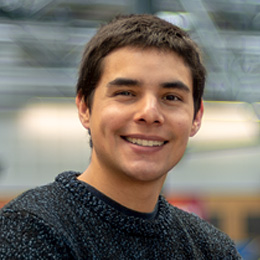 Having completed the original Solar Energy MOOC was a real benefit in my first job interview, in fact I'm positive it helped me get the position. As for the MicroMaster's, my main motivation was to use it as a platform to eventually apply for a master's program at TU Delft, and when I found out that I could get credits for the MicroMaster's, I didn't think twice about it and went for the full, verified track. At the time, the cost was considerable, but the investment was definitely worth it, both academically and professionally.
Having completed the original Solar Energy MOOC was a real benefit in my first job interview, in fact I'm positive it helped me get the position. As for the MicroMaster's, my main motivation was to use it as a platform to eventually apply for a master's program at TU Delft, and when I found out that I could get credits for the MicroMaster's, I didn't think twice about it and went for the full, verified track. At the time, the cost was considerable, but the investment was definitely worth it, both academically and professionally.
How would you describe your online learning experience?
I started taking TU Delft's first Solar Energy MOOC, back in 2014. Following that, in 2017 I enrolled in the Solar Energy MicroMaster's from the same university. My university didn't have a particular focus on solar, so I was eager to learn about it elsewhere, which is how I discovered edX.
The program is great to get a grasp of the overall science of solar energy, with a healthy balance between making it accessible to learners without a physics background, like myself, while at the same time being challenging even for industry veterans. The way I see it, TU Delft's Solar Energy MicroMaster's provides the context for current industry trends while at the same time giving you the tools you need to predict where the industry will be in the next decade.
What did you think of the online learning environment?
I absolutely loved the flexibility and the accessibility. When I was doing the MicroMaster's, I was working at a solar energy company, so I usually logged in to the courses straight after work. Having that flexibility is key to provide education for people that don't have enough time to enroll in a full-time program. The fact that you're able to learn from anywhere in the world is also an incredible benefit. I had classmates from Yemen who were there to learn how to do a PV installation for their community that hasn't had reliable electricity in years and another one in Brazil who was developing solar modules to install on boats sailing through the Amazon. The multicultural aspect of it was just priceless.
What is your advice to someone who would like to take a similar online program?
Good enough never is. Which is, I believe, the mindset that drives learners to continually improve ourselves, especially on edX. At the same time, do your best to stay ahead of the curve when it comes to what you want to learn and, more importantly, why you want to learn. Is it to learn a new set of skills that might help you get a promotion? Or maybe to solve a specific problem within your community? Take your pick whether it's climate change, economic inequality, refugee crises, pandemics, the list goes on. Set yourself a why for your learning experience and always remember that you're learning because of that.
There's a Japanese concept that I've fallen in love with, it's called ikigai, which roughly translates to "a reason for being". In simpler terms, think of a four-circle Venn diagram, where "what you love", "what the world needs", "what you can be paid for", and "what you are good at" intersect, and that's your ikigai. For me that's certainly solar energy and that's what keeps me moving forward.
My case in particular was somewhat different from most learners, in the sense that my goal from the beginning was to use edX as a platform to apply for a Master's at TU Delft. I was fortunate enough to be admitted and receive a scholarship. It is no understatement to say that it's a dream come true. And then, a few months ago I got hired by the university to manage the solar energy MOOCs that brought me here in the first place, which I'd say is very poetic. Thank you, TU Delft.
